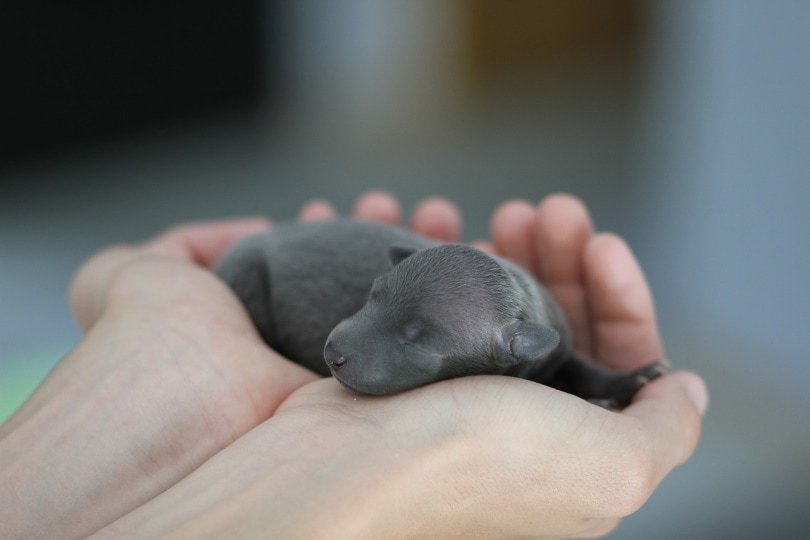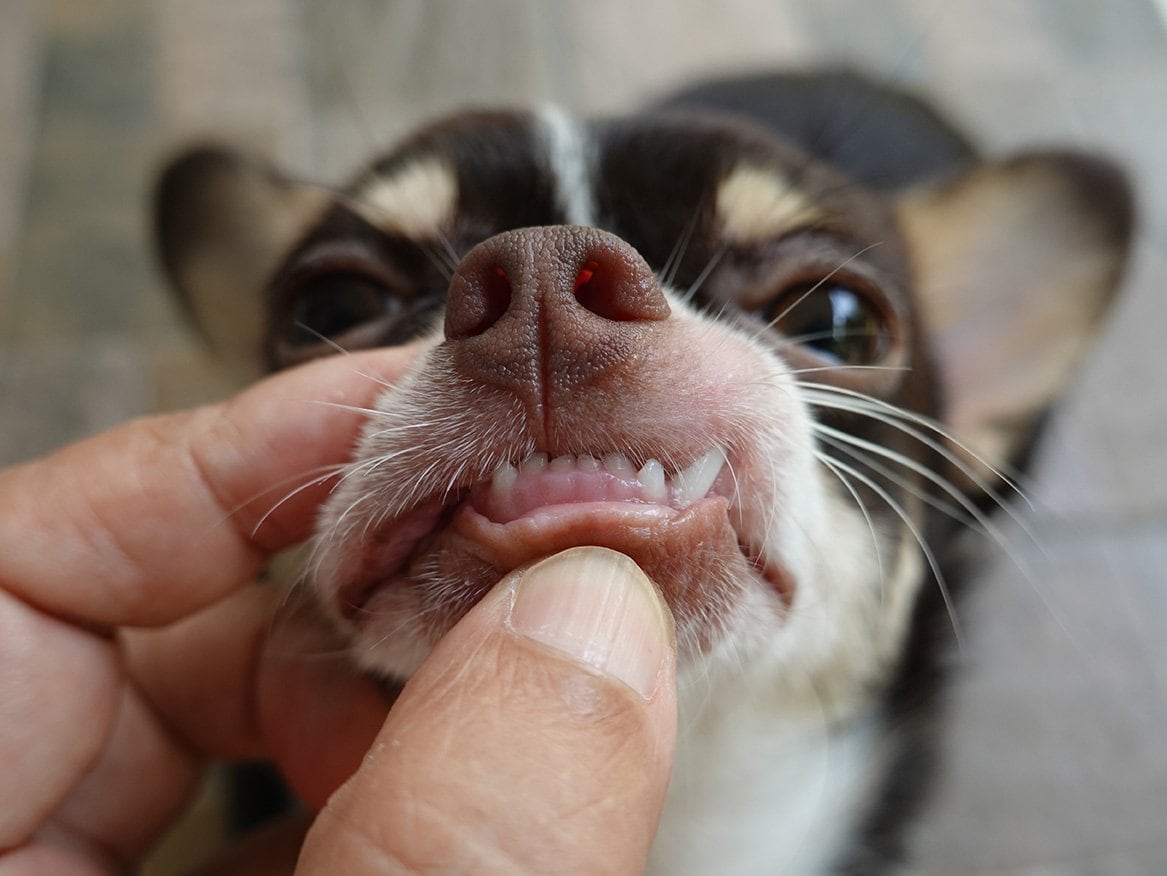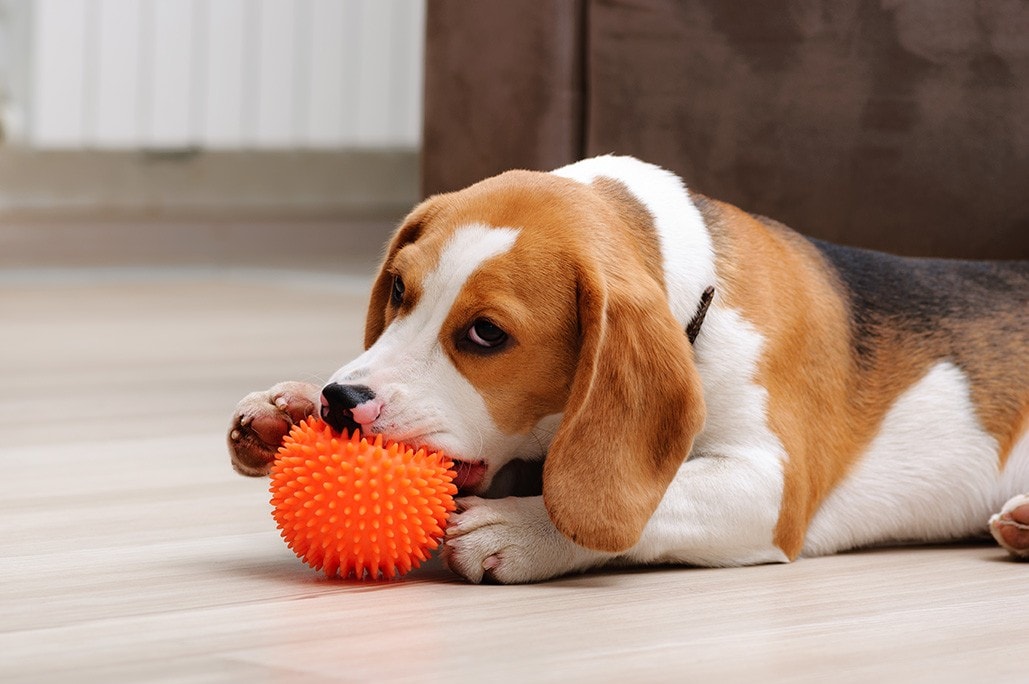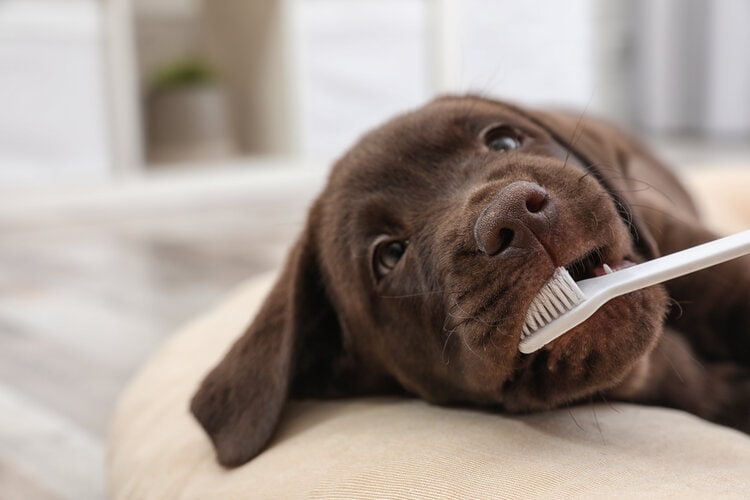For first-time owners, puppy dental development can be tricky and costly. Just like humans, puppies are born without teeth and go through a series of losing baby teeth before finally growing in their permanent adult teeth.
Puppies will get their teeth between two and eight weeks. To learn what to expect when it comes to your puppy’s dental health, keep reading. This article fully explains the timeline for your puppy’s dental health and what you can do to keep your dog’s teeth as healthy as possible. Scroll down for more.
Are Puppies Born With Teeth?
Many first-time puppy owners are shocked whenever they look into their puppy’s mouth and do not see teeth. Even though adult dogs have pretty intimidating teeth, puppies are much like newborn babies in that they are born without teeth.
It’s believed that both babies and puppies are not born with teeth so that the mother can feed the baby as comfortably as possible. When the puppy is a newborn, it feeds on its mother’s milk. As you would imagine, a puppy with teeth would be incredibly painful for the mother to feed. So, puppies have very gummy mouths when born, just like human babies.
It isn’t until the puppy starts eating other foods that it grows in teeth. The teeth allow the puppy to eat hard food, not just liquid milk.

When Do Puppy Teeth Come In?
Even though puppies are born without teeth like newborns, they begin growing their baby teeth much sooner than human babies. In fact, most puppies will begin growing in their baby teeth at the beginning of the weaning process.
The weaning process normally begins when the puppy is three to four weeks old. In some breeds, this process does not start until the puppy is a whopping eight weeks old. In comparison, some puppies may start sprouting their baby teeth when they are just two weeks old.
No matter when your puppy begins sprouting its baby teeth, expect 28 baby teeth to come in, each of which being sharp and pointy.
When Do Puppies Get Adult Teeth?
Again like humans, puppies will lose their puppy teeth and grow in adult teeth in their place. These adult teeth are permanent and much stronger than their baby teeth. Whereas puppies only have 28 baby teeth, they will eventually grow in 42 permanent teeth.
The adult teeth will grow in as soon as the baby teeth are beginning to fall out. The timeline for growing in adult teeth typically ranges from two to seven months, beginning with incisors and ending with molars.
Whenever your puppy is between two and four months old, its adult incisors will start to grow in. Premolars will start to grow in whenever the puppy is four to six months old. Canine teeth are next to follow suit, growing in whenever your puppy is between five and six months old. Finally, molars will start to grow in between the age of four and seven months old.

Should I Pull Out My Dog’s Puppy Teeth?
Once you notice that your dog’s puppy teeth are falling out, allow the teeth to fall out on their own. Despite these teeth looking small, they still have long roots. Trying to pull the baby tooth out on your own can cause the root to break off in the dog’s mouth, leading to infection and pain.
Most likely, the puppy’s teeth will fall out without many issues. If you are noticing pain, discomfort, or issues when it comes to losing the puppy teeth, contact your vet for help. Never try to remove your dog’s puppy teeth on your own.
How To Survive Puppy Teething
The teething process in puppies is incredibly long and annoying for most owners. It starts whenever the dog is first growing in its puppy teeth, and it often won’t end until all of its adult teeth have come in. Because of this timeline, teething can last from the time your puppy is two weeks to nine months old.
During the teething phase, your puppy can cause a lot of damage in your home. Your dog will likely try to chew up anything it can get its mouth on. Here are the two most important tips for surviving the puppy teething phase:

Keep Your Home In Tip-Top Shape
If you tend to leave shoes and other items on the floor, get in the habit of cleaning your home regularly when your puppy is teething. Anything your puppy can get ahold of is liable to be destroyed. Keep your home in tip-top shape to try to keep all of your items protected.
Invest In Teething Toys
In addition to cleaning your home, provide your puppy with plenty of teething toys. The reason that your puppy is likely to destroy your home is because it wants to teethe. By providing teething toys for your puppy, it still gets to teethe as desired but do so on approved and safe items.
The best teething toys are soft, flexible, and easily bent. If you don’t know which teething toy to select, you can always call your vet for some recommendations.
Tips For Caring For Your Puppy’s Teeth
Many dog owners neglect their dog’s dental health, but just like us, it’s important to maintain your dog’s teeth since they are a vital part of their wellbeing. From the time your dog is a puppy, it’s important to take care of its teeth. Here are tips for making the most of your dog’s dental health:
Brush Your Dog’s Teeth
A standard part of all dogs’ care routines should be teeth brushing. If you start brushing your dog’s teeth from the time it is a puppy, it won’t be afraid of the process. Invest in a good doggy toothbrush and toothpaste to prevent plaque, gingivitis, and other dental issues.

Get Breath Treats
Even if you do your best to brush your dog’s teeth, it might not have the best breath or a perfectly clean mouth. You can invest in breath treats so that your dog gets to enjoy a treat all while keeping its mouth clean and fresh.
Know When To See a Vet
Most dogs do not experience severe dental issues until they are older, but young dogs can have dental problems as well. By knowing when to see a vet, you can alleviate pain and discomfort as soon as it arises in your dog. If you notice that your dog is not eating or has severe bad breath and gunk in its mouth, call a vet to get its teeth checked out.
Final Thoughts
Just like us, dogs go through a process of growing baby teeth, losing those baby teeth, and growing in permanent teeth in their place. As a result, dogs require a lot of the same dental care as we do. From the time your dog is a puppy, get in the habit of cleaning its teeth to keep those chompers as healthy as possible.
Featured Image Credit: ElfinFox, Pixabay












